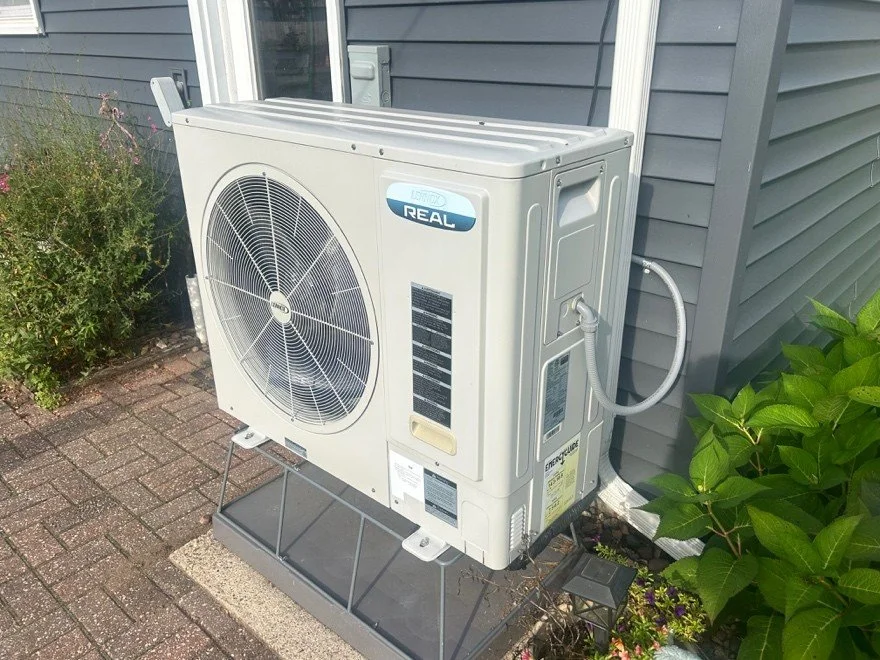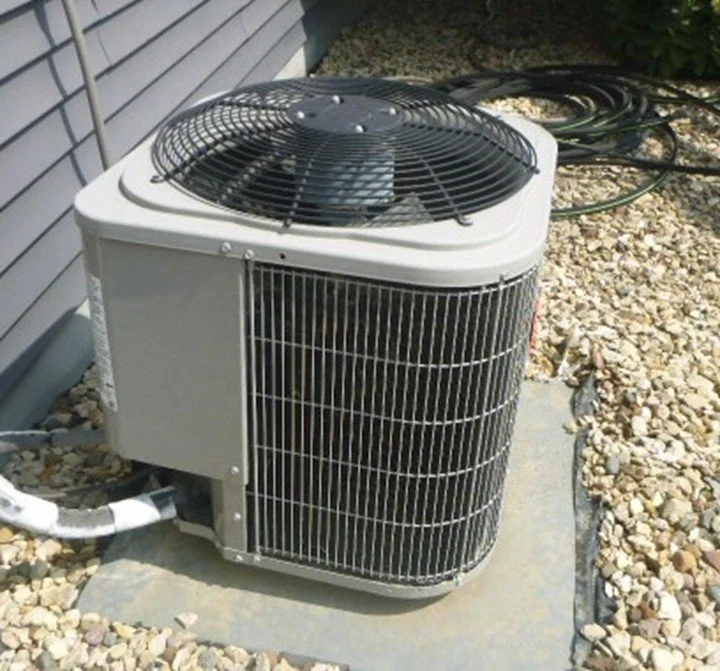When assessing a home's heating and cooling systems—whether you're a homeowner, prospective buyer, or home inspector—it's crucial to understand the differences between a heat pump and an air conditioner. Both systems are key for controlling indoor temperatures, but their functions, components, and capabilities vary. This comprehensive guide explains the main differences, helping you make informed decisions during a home inspection. HomePro Inspections offers the following information to help you understand the difference between a heat pump and an air conditioner.
Heat Pump
What is a Heat Pump?
A heat pump is a flexible mechanical device that can both cool and heat a home, depending on the season. It operates on the same basic refrigeration cycle as an air conditioner but features a key component—the reversing valve—that enables it to work in two directions.
How Heat Pumps Operate
A heat pump has similar parts to an air conditioner but includes the following:
· Reversing valve
· Defrost control (suitable for cold climates)
During cooling mode, a heat pump works exactly like an air conditioner—removing heat from inside and releasing it outside. In heating mode, the reversing valve changes the refrigerant flow, allowing the system to gather heat from the outdoor air (even when it feels cold) and bring it inside.
Key Features of Heat Pumps
· Provides heating and cooling with a single system.
· Generally, more energy-efficient for heating in mild climates than furnaces or electric heaters.
· In very cold climates where outdoor temperatures are extremely low, supplemental heating (like electric resistance coils or a furnace) may be required.
Air Conditioner
What is an Air Conditioner?
An air conditioner is a mechanical system designed mainly to cool indoor spaces during warm weather. It operates by removing heat from inside the house and releasing it outside, making the indoor environment more comfortable.
How Air Conditioners Function
The main parts of an air conditioner include:
· Compressor
· Condenser coil (usually located outdoors)
· Evaporator coil (located indoors)
· Expansion valve
· Refrigerant
The process begins when the refrigerant absorbs heat from indoor air as it passes over the evaporator coil. The warmed refrigerant is then pumped outside to the condenser coil, where it releases the heat. The cooled refrigerant then travels back inside to repeat the cycle. This process continues until the desired indoor temperature is reached.
Main Differences: Heat Pump vs. Air Conditioner
Heating Capability: The main difference is that a heat pump can function as both a heater and an air conditioner, whereas an air conditioner can only cool. Home inspectors often check for the ability to produce heat in cooling systems to identify a heat pump.
Reversing Valve: A heat pump includes a reversing valve that enables it to switch the direction of refrigerant flow. This feature is not present in standard air conditioners.
Energy Efficiency: When used for heating, heat pumps are generally more energy-efficient than electric furnaces because they transfer heat rather than produce it. Air conditioners do not offer heating and therefore require a separate heating system, which is often less efficient.
Installation and Operation: Both systems appear similar externally and may use the same air handler, but a home inspector will check for specific controls and components to identify which system is installed.
Climate Suitability: Heat pumps are preferred in regions with mild winters, while air conditioners combined with furnaces are more common in areas with very cold winters.
Accurate Identification Is Important
Properly differentiating between a heat pump and an air conditioner influences:
· Home valuation
· Energy efficiency estimates
· Recommendations for repairs, replacement, or upgrades
· Understanding of utility costs and maintenance requirements
For buyers and sellers, understanding the system type helps predict future energy bills, comfort levels, and upgrade options. For the home inspector, it’s an essential part of a comprehensive home inspection report.
Advantages and Disadvantages
Heat Pump
· Advantages: Year-round comfort, energy-efficient heating and cooling, often lower operating costs in temperate climates, single-system simplicity.
· Disadvantages: May struggle to keep up in extremely cold climates, potential need for supplemental heat, higher upfront cost than a standard air conditioner.
Air Conditioner
· Advantages: Effective cooling, well-suited for hot climates or homes with separate, robust heating systems, and typically lower initial installation cost.
· Disadvantages: It requires a separate heating system, potentially higher operational costs if paired with an inefficient furnace, and is unsuitable for year-round temperature control without additional components.
Maintenance and Inspection Considerations
Both heat pumps and air conditioners need regular maintenance to run efficiently and reliably. During a home inspection, home inspectors should examine the following:
· Age and overall condition of the unit
· Refrigerant lines and insulation
· Electrical connections and controls
· Condition of coils and filters
· Functionality of the thermostat
· Signs of leaks, rust, or unusual noises
Summary
Understanding the difference between a heat pump and an air conditioner is crucial during a home inspection. A home inspector should be able to identify either system, explain how it works, and note what it means for the home’s comfort and energy efficiency. Although both systems might seem similar at first, their functions and suitability for different climates and household needs vary greatly. Whether you're buying, selling, or just want to learn more about your home's HVAC system, making an informed decision helps ensure comfort, efficiency, and peace of mind.
At HomePro Inspections, we are trained to look for these issues when inspecting a home. Any problems are documented and recommended for resolution by a qualified professional.
Visit our website to learn more or to schedule your home inspection in the Rochester, Owatonna, and Faribault, MN areas. You can contact us today at (507) 202-8942, email us, or use our online “Schedule Now” feature to schedule an appointment.


